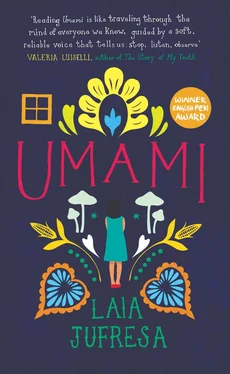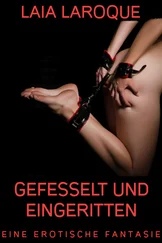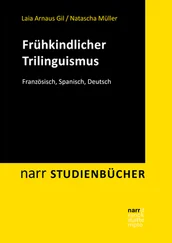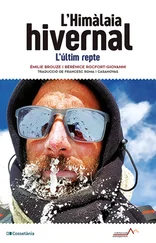I promised, but I also told her that ‘baby’ made me very uncomfortable. And so we agreed to call her ‘the girl’. The girl seemed more neutral to me. No, if I’m honest, it seemed more ironic. It gave me the hope (the false hope, as my wife would make sure) that I was going to be able to keep my distance from the whole thing. For me the girl was a thing. Then they became two things. And then, inevitably, they became The Girls. But that came later.
Chris was an American lady Noelia exchanged emails with before she decided to adopt a reborn in Stratford-upon-Avon. Noelia read me out her emails, which recounted Chris’s deadly-boring life in microscopic detail. I can’t say I thought much of Chris, and then she started sending me separate emails urging me to understand my wife’s needs, after which I positively loathed her. Chris was a consummate collector, not to say sick in the head. Her fifty-plus collection of reborns had their own outhouse in the garden, and on top of names and surnames, they’d each been assigned their own hypothetical future.
‘So-and-so is going to be a doctor like you,’ she told Noelia when she went to meet Chris in person, taking advantage of a cardiology conference in the States.
My wife returned from that trip explaining to me that a ) Chris is a psycho killer with frills, you know the type? and b ) she was going to buy herself a reborn, whether I liked it or not. Chris was also a reborner, but a lousy one. A large part of the decision to go to England was to avoid offending Chris who, according to Noelia, ‘would’ve sniffed us out the very second we ordered from any other reborner in the States.’ I’d never been to England, so I didn’t argue with the casual paranoid presenting herself to me.
We spent three days in London and then drove all the way to Stratford on the wrong side of the road. To say we drove is a manner of speaking, of course, because I don’t even drive on the right-hand side, let alone the wrong one. I map-read. We settled into our hotel, then went to meet the reborner and put in our order. More than anything we wanted to make sure that there was a dark-skinned model in the reborner’s catalogue, and that she wasn’t going to lumber us with some totally inappropriate little blond dolly. Without having told me, Noelia had packed a bag with photos of us from childhood so that the reborner (what was her name? Marissa? Melissa? I don’t know, but I’m sure it had a double s in there because that was my prompt to be doubly condescending) could take inspiration from our younger faces. I spent the whole visit swinging between the giggles and pure disgust. I was pretty unbearable really. Noelia sent me to the car and ended up ordering Maria alone.
I remember lots of painted wood and a little yard at the back of the hotel in Stratford where we lived while we waited for Maria’s rebirth. Hidden among the flower pots was a life-sized stone statue of a pig. I remember the stairs with their Persian carpets, and how they perplexed me. I still can’t figure it out. Are they made to measure, or are they existing carpets molded and nailed down to each step? But my clearest memories are of the breakfasts. Served on porcelain dishes with domed metal covers, the whole thing was incredibly imperial, and totally unbefitting a modest, four-bedroomed guesthouse. Each night, on a little list, you had to mark a series of crosses against whichever food you wanted to appear on your porcelain dish the following day. Noelia and I ticked the same boxes every night: sausages, roasted tomatoes, and baked beans (with bucket loads of added sugar), which gave rise to a fleeting but intense obsession. I remember that when we got back to Mexico I tried to make them with black Cuban beans and brown sugar: an all round disaster. That’s one thing I’ve learned about food through pure empirical research: food is a patriot. Under no circumstances will it be replicated outside of its mother country.
One morning during that week, Noelia announced that she could contain her curiosity no longer, and called the reborner to ask permission to come and see Maria-in-the-making. It was a big mistake. Seeing her in the oven was far from pleasant. She was deformed.
‘She’s not deformed,’ Noelia corrected me. ‘She’s just still in parts.’ Noelia, who was never politically correct, suddenly got all high and mighty, precisely when we were in the company of a woman who couldn’t understand our Spanish anyway. Melissa, or Marissa, didn’t speak anything other than incomprehensible English. But she was a smiley, strapping woman who laughed so heartily it was infectious: even I — amid my waves of serious grumpiness throughout the trip — cracked up when she got going. I put my moods down to the fact that I was constantly questioning my wife’s sanity, and with it my own, because, as I’ve explained to Nina Simone a thousand times, we were two people and one person at once. We were a compendium. A compilation. An unequivocal unified compartment. Something like that.
That thing about us not understanding a word the reborner said is pretty much true. For example, she pronounced ‘breather’ ‘brida’, and had to write it down before either of us understood what in God’s name she was on about. The brida, as we called it from then on, is a simple mechanism you insert inside the doll’s ribcage and which, once activated, makes her chest rise and fall rhythmically. In other words, it sort of makes her breathe. Battery-operated breathing. At first we said we didn’t need it, but later, when we were sitting alone together by a pub fire, Noelia admitted she was drawn to the idea.
‘Why not? If we’re already spending a fortune on this girl, why not have the most high-tech, ultra-snazzy, extra-plus model possible?’
She was so enthused that I even called the reborner myself, from the pub’s telephone. With some scotch in me for courage, I told her that we did want the brida after all: we wanted the girl to ‘breathe’. The only problem being that you can’t do scare quotes over the phone, and perhaps that’s when my irony started to fade.
We didn’t go back to see Marissa Melissa until adoption day. In the meantime, we visited gardens and castles, and saw a ton of very green grass and two Shakespeare plays. They call it adoption in the reborn world; the moment you first come face to face with your new baby. Isn’t it more like the moment of birth, that first meeting between parents and child? Why do they call it rebirth? As far as I’ve understood it, the idea is that the doll is born in the moment of assemblage, when the adoptive parents aren’t present, just the creator. The reborner. Melissa. Or Marissa. And then it’s re born (it’s reborn as a baby is the idea, like when Pinocchio becomes a boy) in the moment of adoption.
Noelia and I were in the local pub when Maria was born. In the pub, downing pint after pint of beer so heavy it was like drinking umami, and laughing at ourselves to the point of tears. But on the day of the adoption we were serious. I was overcome with that feeling of liberation you only feel when you’re miles from home, and decided I was going to be understanding and try to enjoy it all, if only to make Noelia happy. Melissa Marissa presented us with Maria in a box with a clear plastic lid.
No amount of Shakespeare or art galleries really prepares you for such hyperrealism. That’s why some people hate hyperrealism and don’t consider it art at all: to them it’s a righteous, full-of-itself style that constantly puts your sanity and senses to the test. We could have referred to her as the girl, or doll, or whatever we’d wanted, but Maria looks as much like a newborn baby as I look like a withered old man. We opened the box, oohing and aahing, then cracked open the bottle of lukewarm champagne we’d brought for the reborner, and took turns carrying Maria. We learned how to dress her, how to wash her, and how to change her batteries.
Читать дальше












